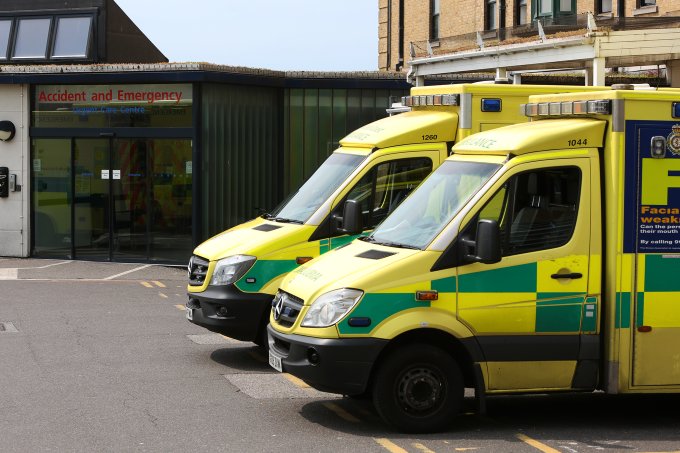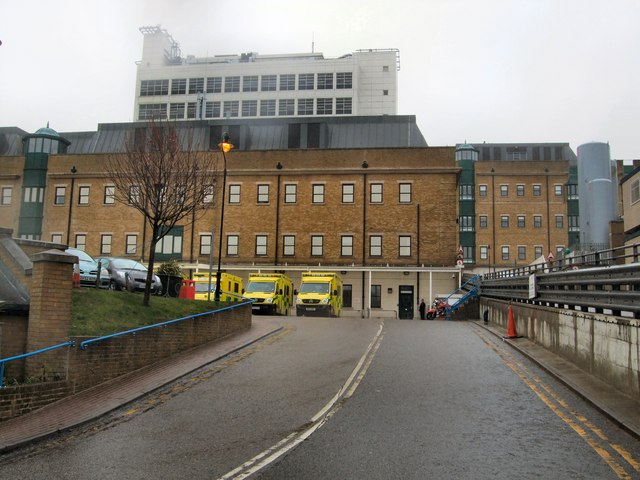Shortcomings at a busy Brighton hospital have led an official watchdog to downgrade its verdict from good to “requires improvement” after a formal inspection.
The CQC (Care Quality Commission) is due to publish its report on the A&E (Accident and Emergency) Department at the Royal Sussex County Hospital, in Brighton, today (Friday 29 July).
The watchdog is also due to publish its verdict on other departments across University Hospitals Sussex, the NHS trust that runs the Royal Sussex.
The CQC said: “The overall rating for the emergency department at the Royal Sussex County Hospital has moved from good to requires improvement following this new inspection.”
The inspection was prompted as a result of “concerns raised about the quality of services being provided”.
The CQC said: “At the Royal Sussex County Hospital emergency department inspectors found a number of issues. The use of the environment didn’t always support keeping people safe.
“Patients were frequently accommodated in non-clinical areas, including corridors.
“It didn’t always enable staff to protect people’s privacy and dignity. Discussions between the medical staff and patients weren’t always confidential and discreet, with other patients able to see and hear discussions.
“Short-stay areas didn’t support effective care for patients accommodated there, which included patients with mental health illnesses.
“There were challenges in accessing the service. Poor patient flow throughout the hospital resulted in delays in ambulance handovers.
“There was an increasing number of patients staying longer than four hours in the department before leaving and an increasing number of patients in the department for over 12 hours after a decision to admit them
“Staff collected safety information but this wasn’t always accurate.”
The trust’s new chief executive George Findlay said: “We have secured investment and are finalising a business case to improve the layout and functionality of the emergency department at the Royal Sussex County Hospital and are continuing to build on the improvements we have made in all areas.”
The inspection, in April, included follow up checks on maternity services at the Royal Sussex and across the trust after an inspection last September.
The CQC issued a warning notice last December after maternity services at the Royal Sussex were rated “inadequate” while they were rated as “requires improvement” at three other hospitals – Worthing Hospital, St Richard’s, in Chichester, and the Princess Royal Hospital, in Haywards Heath.
Inspectors also checked up on surgery at the Royal Sussex to see whether there were improvements in a service rated as “inadequate” and issued with a warning notice last December.
The CQC said: “Following this April inspection, CQC found the trust had implemented enough improvements to meet the warning notices in the maternity departments.
“However, not enough progress had been made to combat the problems found in surgical services.
“CQC have imposed conditions in surgery to ensure immediate and urgent action regarding better oversight of risk and quality management of emergency and elective surgery.
“As the inspection of these two services (maternity and surgery) were only to check on the progress of improvements, the ratings for maternity and surgery both remain rated as inadequate.”

Dr Findlay said: “Since I returned to the trust two months ago, I have been extremely impressed by the efforts and commitment of colleagues in all our hospitals to always provide the highest standards of patient care despite the pressures on our services.
“I am pleased, therefore, that the inspectors recognised a real commitment to patient care across all services and noted the wide range of improvements made since their previous inspection of maternity and surgery in September 2021.
“We recognise there is more work to do and we are doing it. We are successfully recruiting new people to our teams and filling our staffing gaps.
“Some issues take longer to resolve than others but I want people across Sussex to know that when they come to a University Hospitals Sussex hospital, we will do all we can to provide the safe, high-quality, effective care they expect.”
The CQC’s head of hospital inspection Carolyn Jenkinson said: “At this inspection we saw a number of improvements at University Hospitals Sussex NHS Foundation Trust’s maternity department which showed they have met their requirements in the warning notice.
“The trust still have work to do, but it is positive that so much progress has been made, and we’ll continue to monitor them to make sure these are embedded and built upon.
“We are concerned, however, that very little improvement had taken place in surgery at the trust since our last inspection.
“Leaders understood the issues that service faced but weren’t always able to manage them.
“Staff didn’t feel supported and it was worrying that those without the necessary skills, competence and training were caring for patients.
“Although managers told us they were addressing the issue of staff culture, which was something we had previously identified, and an external review had been commissioned, some staff said that they still felt worried about raising issues as they felt it would reflect adversely on them.
“We also found the number of cancellations for emergency surgery worrying. There was a lack of oversight around complications for patients associated with delays and cancellations of emergency surgery.
“Medical staff we spoke with told us that the management of these wasn’t good enough, meetings were often cancelled and poorly attended.
“This is something we need the trust to resolve as a matter of urgency and with that in mind we have now imposed conditions upon the registration of the trust to ensure immediate and significant improvements are forthcoming.
“We identified several areas in the emergency department that the trust needs to address as a matter of urgency.
“Patients were frequently accommodated in non-clinical areas, including corridors, which didn’t protect people’s privacy and dignity.
“It was also very concerning that short-stay areas didn’t support effective care for patients accommodated there which included patients with mental health illnesses.
“We are aware the board are working with NHS England and Improvement and the local CCG who will support the trust in their work to drive these improvements.
“In the meantime, we will continue to monitor the trust and return to check what further improvements have been implemented and embedded.”
The CQC said: “During the inspection of surgery at the Royal Sussex County Hospital inspectors found
- Some patients requiring emergency surgery experienced delays and cancellations placing them at risk of further complications. Staff felt there was a reluctance to cancel elective surgery to undertake or prioritise emergency and trauma surgery. The trust told us that no emergency surgery had been cancelled to meet an elective key performance indicator (KPI).
- The service didn’t always have enough nursing and support staff with the right skills, training and experience to keep patients safe from avoidable harm and to provide the right care and treatment.
- Theatres and recovery didn’t have enough nursing and support staff with the right qualifications, skills, training and experience to keep patients safe from avoidable harm and to provide the right care and treatment. All staff in theatres and recovery spoke of poor staffing and exhaustion. This was the same as our last inspection.
- Staff didn’t feel respected, supported and valued and weren’t always clear about their roles and accountabilities.
…
“Throughout the trust’s four maternity departments, inspectors found the following
- The trust employed a number of new midwives to ensure safer staffing levels for the care and treatment of women and babies.
- Previously staff were unable to complete mandatory training and there wasn’t clear governance around this. The department had made several improvements to ensure completion of mandatory training since our last inspection and staff were now up to date with training in key skills.
- Women attending the triage service previously hadn’t been managed on the basis of risk. Instead, individual risks were assessed in a subjective way. At this inspection a nationally recognised triage tool which was audited and based on risk was now being used, meaning women were being treated the same, and in line with best practice.
- Midwifery leaders at Worthing Hospital and St Richard’s Hospital and Royal Sussex County Hospital were seen as able and visible to lead and develop the service. Leaders at Princess Royal Hospital were felt to be far less visible and accessible particularly above matron level.
…
“However, inspectors also found within maternity services, staff always investigated poor outcomes in order to identify opportunities to learn.
“Doctors, midwives and other healthcare professionals worked together as a team to provide good care.
“Staff treated women with compassion and kindness. Women’s individual needs were taken into account and they were helped to understand their conditions.
“Staff provided emotional support to women, families, and carers. They felt valued by their immediate team members and told inspectors the emphasis on team working brought them pride.
“There was a collaborative and respectful relationship between medical and midwifery staff.
“Surgery staff were focused on the needs of patients receiving care.
“The surgery team engaged well with the community to plan and manage services.”










